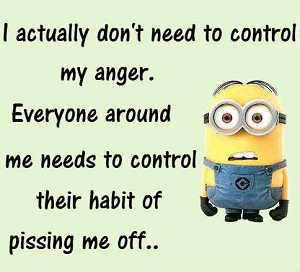Need to know how to manage a difficult person in your life?
Ever wondered why other people are so difficult to get along with? Are you living or working with someone that you find is… Inconsiderate?

Have you ever been hurt by the way someone has treated you, or something they’ve said? Perhaps that someone drives you to distraction – you constantly feel hurt and exhausted, taken for granted and perhaps even invisible?
Do you stay awake at night with thoughts that go round in your head about that person and no matter how hard you try you can’t get rid of the thoughts or feelings? Exasperating?
Have you ever been completely frustrated and screamed at your partner who’s driving you crazy, “It’s like having another child!”?
You may have even considered on more than one occasion leaving your marriage because your once attentive and loving partner is always tired, tuned out, and leaves everything up to you. You end up feeling like you’re the only adult in the family!
There are other types of difficult behaviour.
Perhaps the person you are having trouble with is….
… always getting you to make the decisions, but is then unhappy about your choice? And you get tired of them complaining and always being so negative. You tell them to be a bit more grateful or “glass half full” but their attitude doesn’t change.
Unable to say sorry? And so you end up being blamed for everything?
That person never takes responsibility for any of the issues, and never says they’re sorry. You get so sick of being constantly told it’s your fault! In fact, every time you do things to try to make it right, or to keep that other person from getting angry, it STILL ends up being wrong! It’s like the goal posts keep getting moved.
So why are so many people difficult to get along with?
It’s useful to know that at the end of the day, a person’s behaviour is driven by a need to feel better. That goes for all of us.
However, when the behaviour is inappropriate and impacts others in a negative way, we call it difficult behaviour. Of itself it may not be wrong or illegal behaviour, but it’s still difficult because it affects you and other people negatively – and results in you feeling annoyed, hurt or irritated.
So then you either hurt back (try to get back at them with words or actions) or withdraw from that person, and distance yourself – even if you live in the same house!
But behaviour is almost always a means to an end, and if you can understand this in your partner/parent/child you might be able to think of a different way of dealing with your hurt and frustration – and better manage how you respond.
The goal of managing your own or another person’s difficult behaviour is to improve relationships with those around you, thereby reducing your own stress.
That would bring some peace to your life. Wouldn’t that be great?

